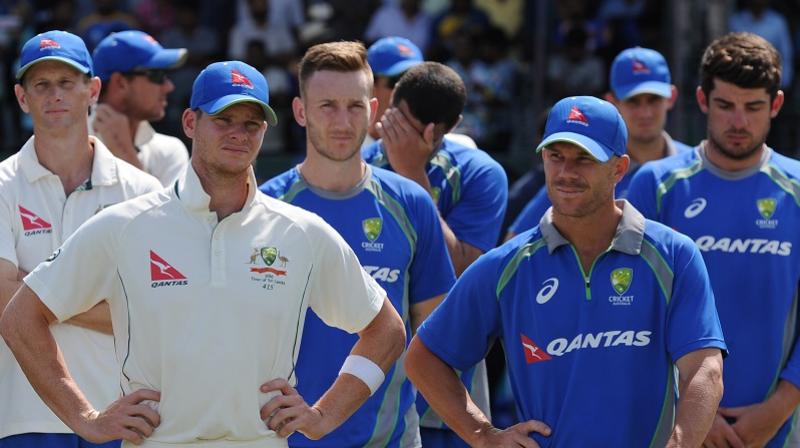We will not budge from the revenue sharing model: David Warner to Cricket Australia

Both the organisations are making very little progress in talks over how to reach a compromise on the next deal.
If a deal is not signed before July 1,
"Well from July 1- we're unemployed", Warner was quoted as saying by news.com.au.
"We've been threatened with that. We're hopeful there's going to be an agreement done - it's a sticky situation."
Warner has been the most outspoken critic of the board in recent weeks after the CA chief executive James Sutherland threatened they would be left unemployed if the ACA did not agree to CA's terms.
The smashing left-handed opener said that the players were committed to ensuring all cricketers shared in the game's upside, not just an elite few.
"We're prepared as players to give a little bit more in that revenue share," he said of the ACA's proposal to reduce the players share from around 26% to 22.5% with more money to go to grassroots levels.
"But that's what we want. We're not going to budge from the revenue sharing model, we want equality, and a fair share for domestic and female players. That in a nutshell is what it's all about," he added.
Warner says training and preparation for the tour will certainly be compromised without a deal struck.
"From our point of view I want to play for
"We want to keep playing cricket for
ACA had earlier rejected the new pay offer from the game's governing body, saying the proposal will be a win for cricket administrators but a loss for the game.
The ACA had also insisted that the CA's proposal disrespects the value of domestic cricketers and the role they play in Australian cricket
CA, on the other hand, has maintained that their new pay offer has to be implemented for the long-term good of the game.
In March, CA made an offer, proposing that the average pay of Australia's international women's players would rise from $A79,000 to $A179,000, while the average remuneration of state cricketers would more than double to $A52,000.
Under CA's proposal, only male international players would have the chance to share in any surplus revenue, while other domestic male players and women at both domestic and international level would have to settle for fixed amounts which would not fluctuate according to the game's income.

